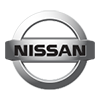Transformation Services
Not Sure Where to Start?
Transformation Services
Not Sure Where to Start?
Transformation Services
Not Sure Where to Start?
VB6 has been out of support for over a decade. The Visual Basic Upgrade Companion (VBUC) uses AI to quickly and efficiently migrate VB6 code to C# or VB.NET and .NET Core (up to .NET 9) or Framework with Windows Forms. Faster than a rewrite, more productive than all other solutions.
Need a web version? Once you’ve migrated VB6 to .NET (Framework or Core), you're ready for the next step with WebMAP to convert that new code to Angular, Blazor, HTML5, and ASP.NET Core.
Unlike a rewrite, VBUC moves existing back-end logic to the new platform, keeping proven and debugged logic and processes intact and dramatically reducing the total defects to be resolved following the migration.
Just run the VB6 migration tool and you'll get clean, human-readable C# or VB.NET source code with all your symbol names and comments preserved. Choose .NET Core or classic .NET- whichever you prefer. All versions of .NET Core including .NET 8 are supported.
Watch a VB6 app with an Access database migrate to C# and .NET in minutes. Test VBUC with our sample code.
Automated migration reduces the time and cost to modernize existing desktop apps compared to rewriting from scratch.
AI-assisted algorithms produce native code with .NET and .NET Core for safe, performant, and familiar applications that can be deployed immediately. Applications as large as 5 million lines of code have been migrated fully in months, not years.
Follow these steps to get the maximum benefits from the Visual Basic Upgrade Companion
Learn More →
This section describes in full detail the advanced features present in Mobilize’s VB to .NET migration product.
Learn More →
A step-by-step guide for installing Mobilize’s powerful VB to .NET migration product.
Learn More →
VBUC requires a license file to work, whether you are using it in evaluation mode or have purchased a license.
Learn More →
The complete VBUC documentation including the Migration Guide and FAQ section.
Learn More →
A successful Visual Basic 6 to .NET upgrade project plan depends on careful analysis and assessment.
Learn More →

A migration that we did ourselves would have taken best case scenario eighteen months, if not two years. And would have presented a much more difficult migration path for our customers. Within three months of having our source code Mobilize had more or less an application in the browser.
- Dan Bonelli, HST Pathways
We were able to migrate our VB6 code to .NET using the VBUC license we acquired through MSDN. After the migration only a few things needed manual modification. So your software did a great job and saved us a lot of time
- JMarco Botermans, Owner - Fluke
Knowing what we really know today, I think that manual migration would be impossible.
- Jarno van Hurne, Global Product Line Director, Exact
Mobilize.Net seemed the only one that sorted out the details, not only the basic issues of a migration engagement. Its product, the Visual Basic Upgrade Companion, included unique, powerful features, many of which turned out to be very valuable for this specific project, like ADO to ADO.NET conversion and error handling transformation
- Rod Coles – President, Bold Technologies, Ltd
We ran a proof of concept comparing the Visual Basic Upgrade Companion (VBUC) with other VB6 migration tools and we definitely preferred the way VBUC handled the conversion.
- James Lewis Stevenson II – Software Design Engineer, GT Software





8834 N Capital of Texas Hwy, Ste 302
Austin, TX 78759
Call us: +1.512.243.5754
info@wearegap.com